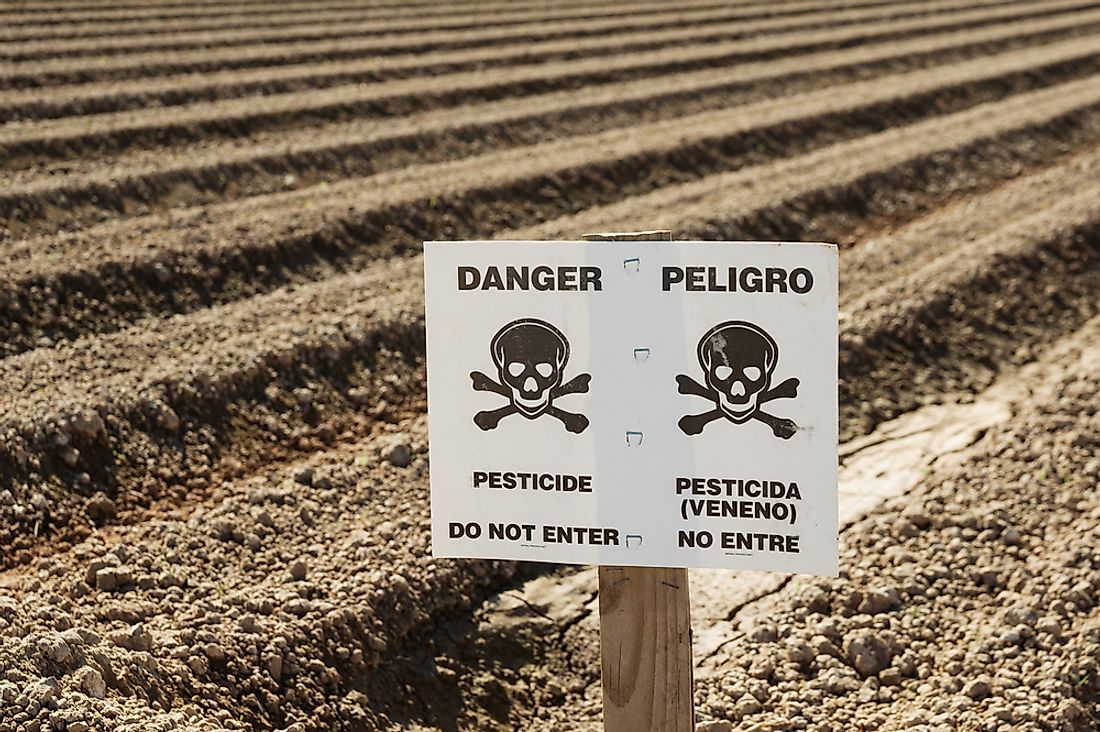What Are The Effects Of Pesticide Poisoning?

When chemicals meant to control pests affect other organisms other than their intended target, pesticide poisoning occurs. Pesticide poisoning comes in three types: short-term high level, long-term high level, and long-term low-level exposures. Pesticide poisoning has adverse effects on humans and the environment, with an estimated 98% and 95% of sprayed insecticides and herbicides respectively reaching non-target organisms.
Health Effects Of Pesticide Poisoning
Individuals exposed to pesticide poisoning may have acute or long-term health effects. A systematic review in 2007 concluded that there should be a reduction in pesticides’ cosmetic use. Acute effects occur mainly in workers handling pesticides, manifested by dizziness, headaches, nausea, skin problems and vomiting. Some adverse effects on health include neurological and reproductive problems.
Long-term Health Effects
According to many studies examining the risk of cancer from exposure to pesticide poisoning, there are close associations with cancers of the brain, prostate, lung, liver, pancreas, skin, breast, kidney, leukemia, and lymphoma. Children exposed to pesticides have a higher risk of developing blood cancer, while exposure to mothers during pregnancy increases their children’s risk of brain cancer, leukemia, and Wilms’ tumor. Other effects linked to pregnant women’s exposure are fetal death, altered fetal growth, and congenital disabilities. Some pesticides such as 2,4-D and dibromochlorophane are associated with altering of hormonal function and low sperm count leading to reduced fertility in males. Furthermore, pesticide poisoning has been associated with long-term respiratory problems.
Effects On Animals
Pesticides in many countries have been linked to adverse effects on animals to the point that some have adopted the Biodiversity Action Plans to regulate the use of pesticides. Pesticide residues in food are the primary sources of animal’s exposure to pesticide poisoning. Pesticides can bioaccumulate in some organisms leading to adverse effects on food chains, especially at higher levels. The growth and reproduction of earthworms, which help to increase nutrients in the soil by digesting organic matter, have suffered the most from harmful effects of pesticides. The US Fish and Wildlife Service observed that pesticide poisoning causes the death of about 72 million birds in the US every year. In most cases, pesticides find their way into rivers and streams posing a threat to aquatic life. Some herbicides targeting plants in water are toxic to most water animals especially fish. In amphibians, exposure to pesticides can cause growth and behavioral abnormalities as well as reproductive problems, which is also common in aquatic reptiles.
Prevention Of Pesticide Poisoning
In humans, prevention of exposure to pesticides requires safety protocols. Personal protective equipment is necessary when applying and handling pesticides. The use of such material helps to reduce exposure and to reduce the risk of harmful effects resulting from pesticide poisoning. Containers need proper labeling and storage to avoid accidental poisoning. Taking extra caution in using and disposing of pesticides will help protect wildlife from adverse effects. In the US, some laws such as the Federal Insecticide and the Endangered Species Act help to keep wildlife safe from pesticide poisoning.











